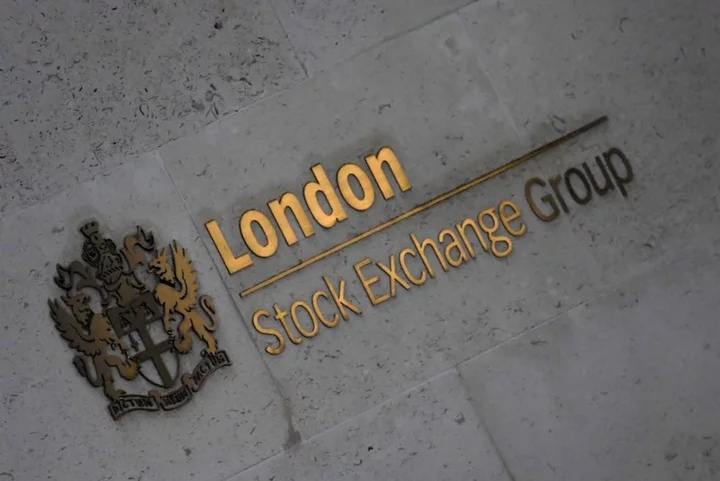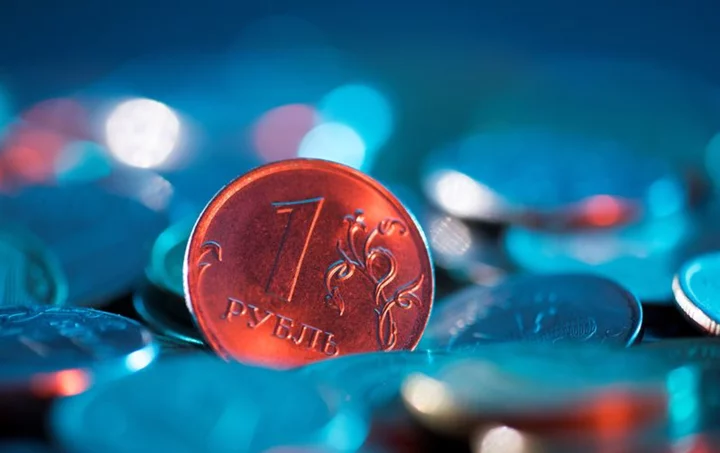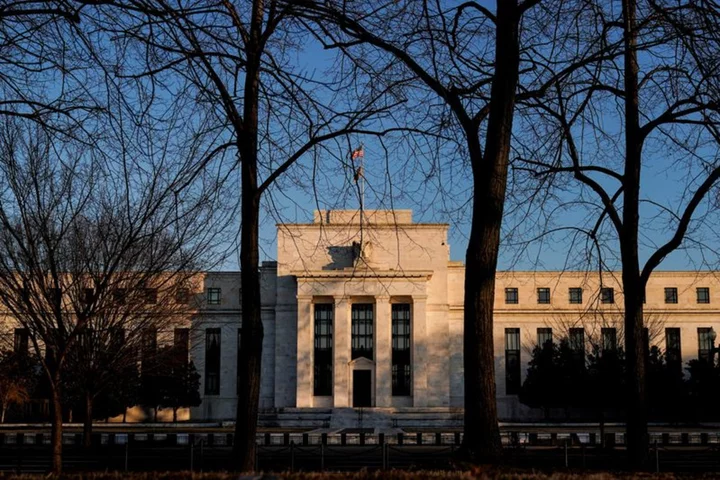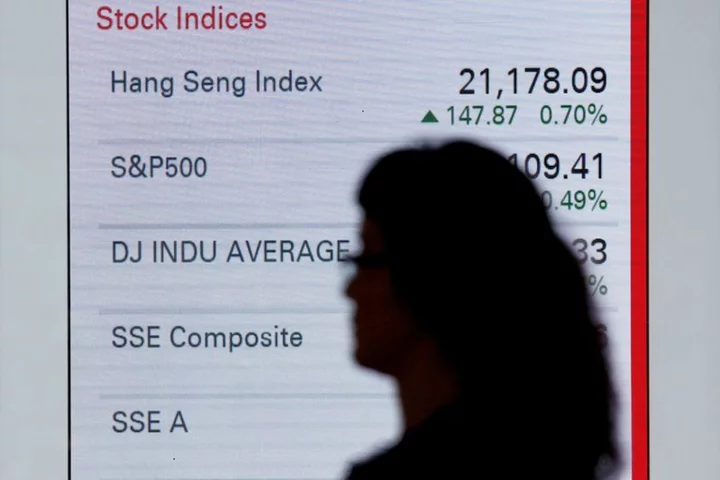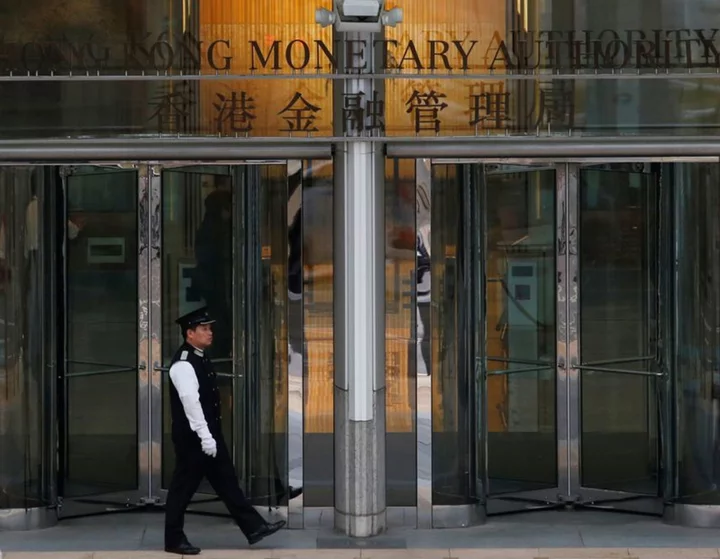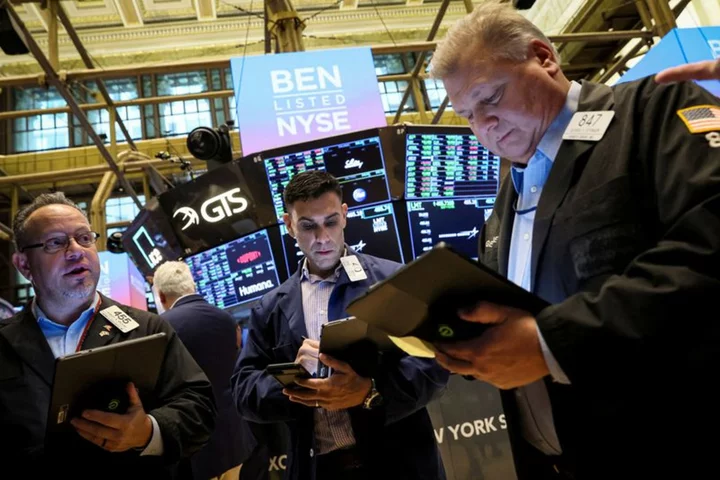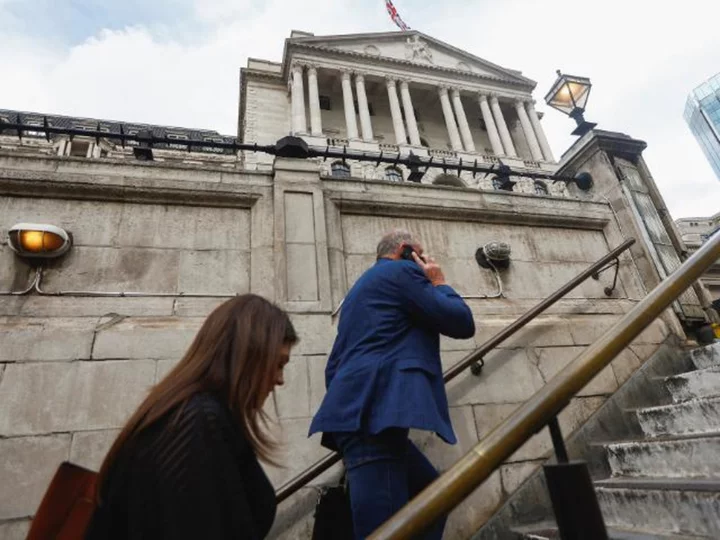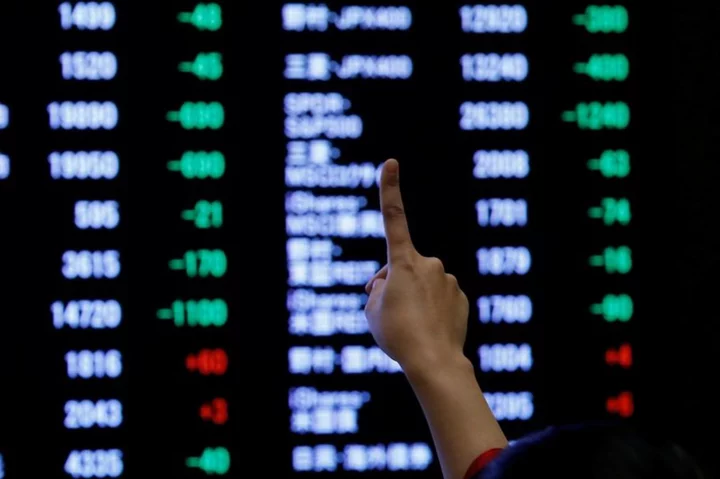By Marc Jones
LONDON Europe's markets were treading water in early trading on Thursday, as investors waited on a knife-edge decision from the European Central Bank on whether to ratchet up euro zone interest rates for a 10th straight meeting.
Stock markets saw carmakers go into reverse after Beijing blasted Brussels' move on Wednesday to investigate electric vehicle subsidies, but for both euro and bond traders it was very much a case of wait-and-see for the ECB.
The central bank for the 20 countries that share the euro faces a dilemma. Even after nine rate hikes in a row, prices are rising at more than twice its 2% target and are not expected to get back to that level for another two years.
A recent run of weak data had left investors leaning towards a pause until Reuters reported on Tuesday that the bank's new staff projections due at the meeting later would raise the inflation forecast for next year to more than 3% again.
"The economy is deteriorating quite quickly now and they will give them some concerns," said Hans Peterson, the global head of asset allocation at SEB investment management, who expects the ECB to hold rates steady later.
"I think the discussion at this point is really about the maximum policy rate and how to prevent a hard landing in the economy".
The ECB's deposit rate is currently at 3.75%. June's ECB staff projections saw inflation at 3% in 2024 and 2.2% in 2025 and money markets are currently pricing roughly one more ECB hike this year and the first cut around the middle of next year.
The pre-ECB market moves included the euro tip-toeing away from a three-month low against the dollar at $1.0752. U.S. inflation data on Wednesday had failed to alter views for a Federal Reserve pause next week.
Germany’s 10-year government bond yield, the benchmark for the euro area's borrowing costs, was down 0.5 basis points (bps) at 2.65%.
"What is going to be interesting is how they manage the forward guidance," said AXA Chief Economist Gilles Moec. "If they sound profoundly worried about inflation, the market could get into a bit of trouble".
CARS SKID
Stock market moves were still largely being driven by Wednesday's announcement that the European Commission was investigating subsidies provided by China to increasingly heavyweight electric car makers like BYD.
Beijing responded overnight, blasting the move as "a naked protectionist act" and warning the EV probe would hurt relations with the EU.
As analysts feared a tit-for-tat tariff war, German giants BMW, Volkswagen and Mercedes and Fiat and Peugeot maker Stellantis were all down between 1% and 2%.
"For German OEMs (vehicle makers), the risk of retaliation in China should not be ignored," analysts at UBS said.
China's carmakers had also seen a drop overnight, although there had been less impact elsewhere in Asia.
MSCI's broadest index of Asia-Pacific shares outside Japan had risen 0.6% for its best session in a week and a half.
Tokyo's Nikkei rose 1.4% to a one-week high. India's BSE Sensex rose 0.5% to a fresh record peak and S&P 500 futures were up as much as 0.3%.
Wednesday's data showed higher fuel prices had lifted headline U.S. consumer prices by the most in 14 months in August for an annual rate of 3.7%, which was a touch above expectations. Core inflation slowed to an annual 4.3%, as expected.
Treasury yields initially spiked higher, as did the U.S. dollar, before both retraced the moves. Fed funds futures hardly budged, and imply nearly no chance of a rate hike next week, and about a 45% chance of another hike by year's end.
For Thursday's ECB meeting, meanwhile, markets are pricing about a 65% chance of a hike that will also take its key interest rate to a record peak.
SHOT IN THE ARM
In foreign exchange markets, the dollar was slightly sold, and the Australian dollar was boosted by a surge in employment in August. It was last about 0.2% higher at $0.6435, though interest rate expectations were little changed.
The yen has mostly handed back gains made after Bank of Japan Governor Kazuo Ueda hinted at the conditions for an end to negative short-term rates, as traders figure on any exit being slow and the gap with U.S. rates remaining wide.
China's central bank has asked some of the country's biggest lenders to refrain from immediately squaring their foreign exchange positions in the market, and to run open positions for a while in order to alleviate downside pressure on the yuan, two sources with knowledge the matter told Reuters.
Chip designer Arm Holdings begins trading in New York later, after a $51-a-share float gave it a valuation of $54.5 billion. Retail sales data are also due.
In commodity markets, oil is on a tear as Saudi Arabia and Russia extend production cuts to the end of 2023. Brent crude futures are up 30% in the last three months and were at $92.32 a barrel in London.
"The market remains beholden to Saudi Arabia's oil policy," said analysts at ANZ Bank, who said if cuts were extended into the first half of next year, Brent prices could hit $100.
(Additional reporting Tom Westbrook in Singapore; Editing by Toby Chopra)

